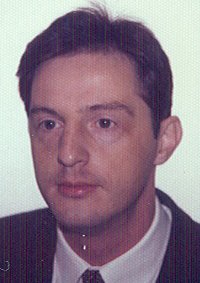Philip van der Eijk, born in Delft, the Netherlands, in 1962. Ph.D. from Leiden University. Professor of Greek at the University of Newcastle upon Tyne.
Fellow (1 September 2000 – 30 June 2001)
During my NIAS Fellowship, I divided my research time over the following activities:
• The theme-group “Rethinking the History of Medicine: ‘Rationality’ and ‘Magic’ in ancient Babylonia and the Graeco-Roman World”. My own contributions to this project have been, participation in the weekly or fortnightly meetings, a number of discussion papers and sections of the draft manuscript of my book on Diocles (see below), a paper at the NIAS conference in June 2001, and a number of informal working-sessions with members of the research group. Generally speaking, this project has been important for me in that it has broadened my view on the development of Greek medicine by putting it in the wider context of Eastern Mediterranean civilization.
• The completion of the second volume of my book on the fourth century BCE Greek medical writer Diocles of Carystus, for publication by Brill in June 2001. Diocles represents one of the earliest extant cases of a practitioner of, what is known as, Greek ‘rational’ medicine, and his encyclopaedic coverage of medicine makes his work a good example of Greek medicine for comparison with Babylonian medicine.
• Hippocrates’ On Regimen: My work on this Greek medical text (c. 400 BCE) has constituted my main contribution to the debate about ‘rationality’ and ‘magic’ in ancient medicine. I compared Hippocrates’ views on the prognostic use of dreams with Babylonian divinatory practice and presented the results at the NIAS conference in June 2001; I have also been working on a separate but related article on references to gods and the divine in the Hippocratic Corpus.
• The impact of ancient medical science on the philosophical discourse of late antiquity. I worked on my translation (with annotation) of John Philoponus’ commentary on Aristotle’s De Anima: a text which contains a large number of medical ideas placed within a philosophical and exegetic framework; I also collected some useful passages on medical issues from various ancient commentators.
